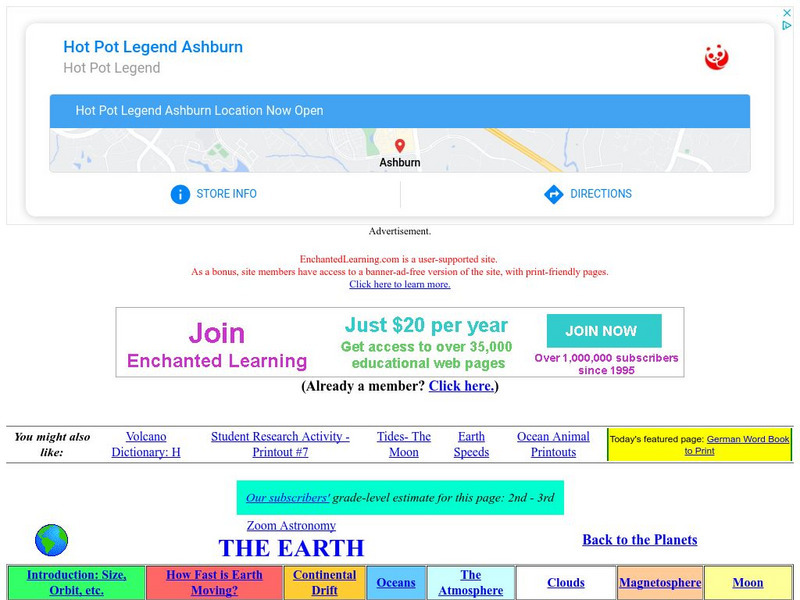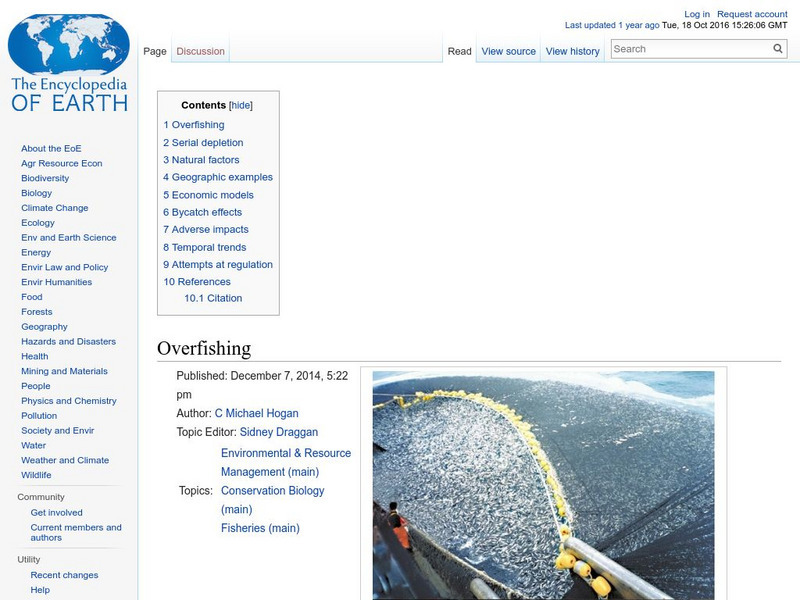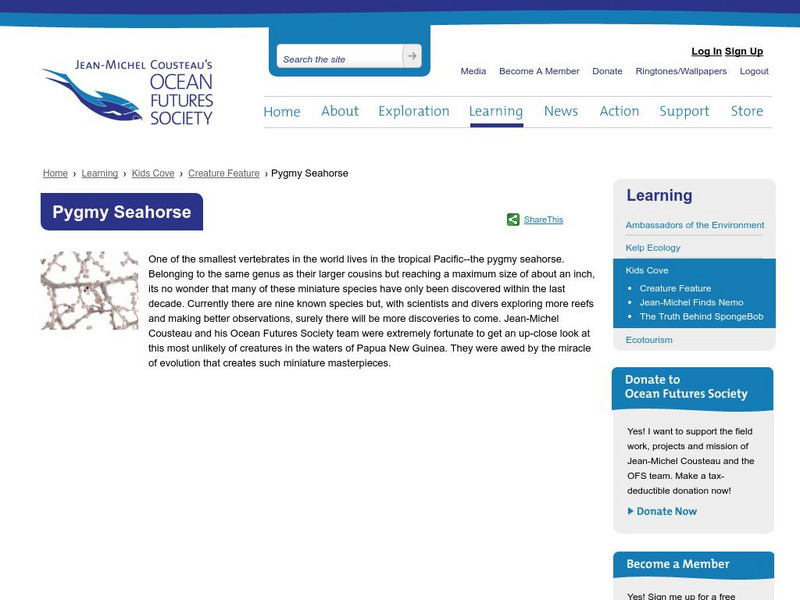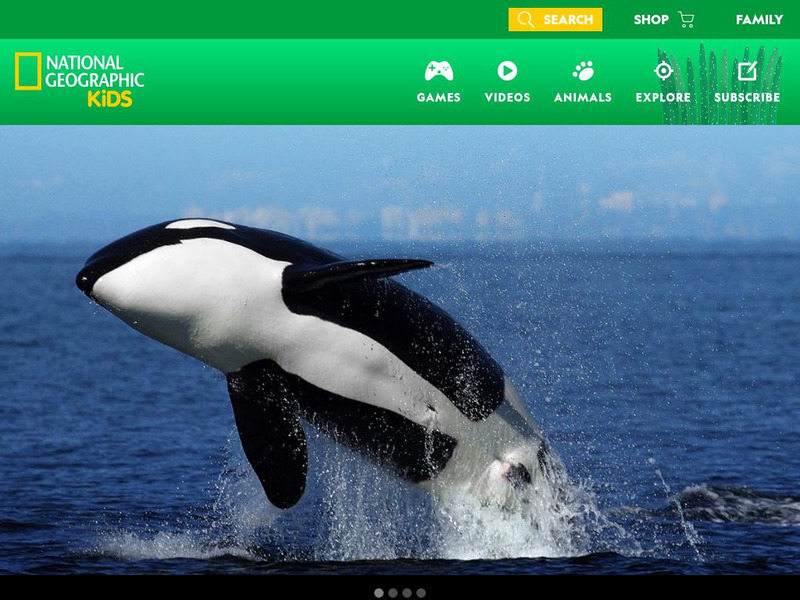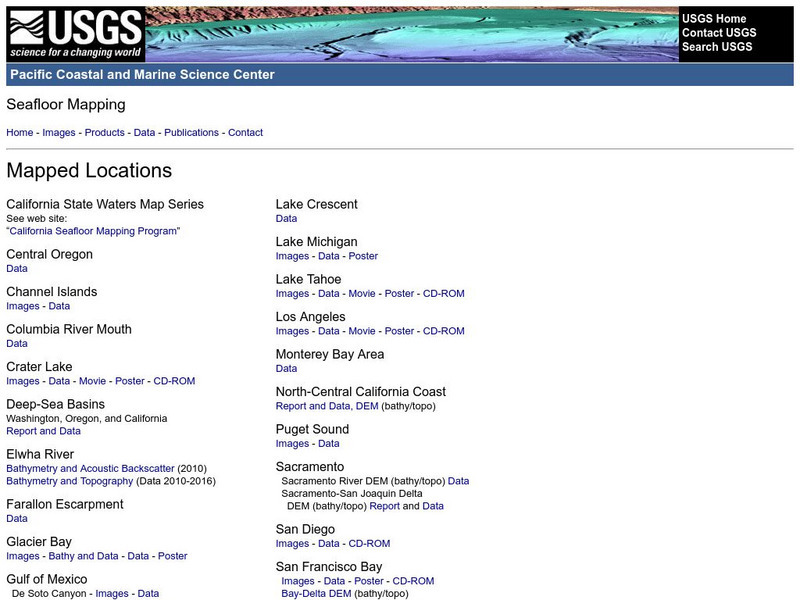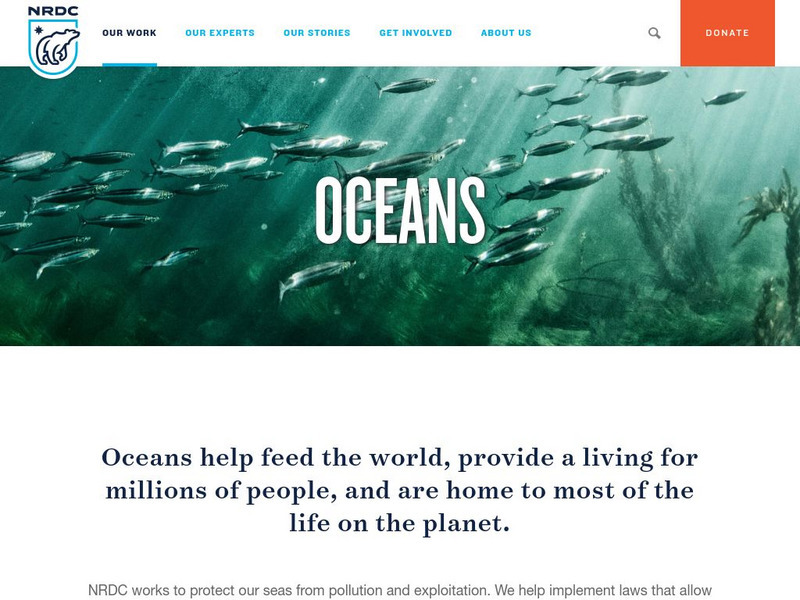Missouri Botanical Garden
Missouri Botanical Garden: How the Ocean Refreshes Itself
Watch the animated illustrations to see how the nutrients at the bottom of the ocean get circulated to the top. This upwelling is necessary in order to maintain a healthy ocean.
NOAA
Noaa: Motion From the Ocean [Pdf]
Reel in some information about fish from the ocean. Then create a mobile with fish that you color.
Enchanted Learning
Enchanted Learning: Zoom School: Oceans
Find out why the oceans are blue and what causes waves by clicking here. There is a table of information about the four oceans as well as interesting facts on waves, salinity, and tides.
American Museum of Natural History
American Museum of Natural History: Creature Feature
A matching game where students match different ocean creatures to their adaptations for survival.
Texas Instruments
Texas Instruments: Jason: Pinniped Body Shape Conserving Warmth
From Shore to Sea: To survive in cold ocean environments an organism's body must be adapted to life under water. A body will cool very quickly when in contact with water. The body shape of an organism is one adaptation that helps to...
Other
Monterey Bay Aquarium Research Institute: Home Page
Use this excellent site to search the volumes of material available at MBARI about the ocean and climate.
Exploratorium
Exploratorium: Webcast: Live Deep Sea Exploration via E/v Nautilus
Oceanographer Dr. Bob Ballard is interviewed in a webcast to highlight the purpose and experiences of his deep sea explorations. Ballard has teams on a ship studying in the Mediterranean Sea and Atlantic Ocean researching hydrothermal...
Encyclopedia of Earth
Encyclopedia of Earth: Conservation Biology: Overfishing
Article describing the scope of the problem of overfishing in the ocean and in fresh water bodies around the world. Adverse effects of this practice on both natural and human systems, and efforts to contain it are detailed. (Published:...
Other
Winston Salem/forsyth Schools: Neritic Zone
This 25-page teacher resource (Word document) offers information and discussion questions on the ocean's neritic zone.
Science Education Resource Center at Carleton College
Serc: Lab 3: Oh What a Tangled Web: Ecosystem Based Management
A lab experiment in a series of experiments that looks at fisheries. In this particular lab, students use tools like Pacific Ocean Shelf Tracking to learn about the management of fisheries through an ecosystem-based approach. During this...
Untamed Science
Untamed Science: Biology: World Biomes: Pelagic Biome
Learn about the different zones of the open ocean, the pelagic biome, and what organisms call each zone home.
Other
Ocean Futures: Kids: Creature Feature: Pygmy Seahorse
Learn about this truly unique animal and where it can be found, in Papua New Guinea. Includes video.
Kinder Art
Kinder Art: Construct an Artquarium (Lesson Plan)
This lesson plan gives students a chance to create their own underwater animal out of paper-mache, and their imagination. Provides a colorful photo example, assessment criteria, and a suggested book to use for inspiration.
Smithsonian Institution
National Museum of Natural History: Ocean Planet: Biological Roulette: Alien Species
Click on the roulette wheel and see how some alien species were introduced into the United States and the effect they have had on our country. This is part of an archived Smithsonian exhibit.
Smithsonian Institution
National Museum of Natural History: Ocean Planet: Oil Pollution
Source provides key facts and figures as well as pictures on various oil accidents. Site information is divided up into three categories: Sources, Accidents and Cleanups. This is part of an archived Smithsonian exhibit.
Missouri Botanical Garden
Missouri Botanical Garden: What's It Like Where You Live? (Oceans)
This site contains a wealth of information. You can click on shorelines, temperate oceans and tropical oceans. Each page contains links to even more information.
National Geographic Kids
National Geographic Kids: Animals: Orcas
Orcas, more commonly known as killer whales, are featured on this multimedia site. These video clips, audio clips, photographs and facts will be very beneficial to students doing research projects.
TED Talks
Ted: Ted Ed: The Otherworldly Creatures in the Ocean's Deepest Depths
Although the deep ocean zone seems like an inhospitable and remote corner of the planet, it is actually one of the greatest habitats on Earth. Lidia Lins explores how so many species thrive in this mysterious underwater world. [5:02]
EL Education
El Education: In the Zone: Where the Land Meets the Water
This field guide to the marine organisms of the intertidal zone of Casco Bay was created by 7th grade students in Portland, Maine, as part of a Learning Expedition called, "In the Zone." Students were engaged in scientific research at...
US Geological Survey
Usgs: Pacific Seafloor Mapping Project
This site describes the details of a project to map the seafloor of the Pacific Ocean. Includes images, movies, links to related information, and more.
Other
National Resources Defense Council: Your Oceans
Learn about issues that are major threats to the health of our oceans; read personal stories of how these threats affect people whose lives are connected to these valuable resources. Includes possible solutions and things you can do to...
Other
Uk Rivers Network: Finding Out About Water Pollution
Excellent site covers all types of water pollution. Hundreds of links including books, articles, organizations, specific topics.
Smithsonian Institution
National Museum of Natural History: Ocean Portal: Life at the Poles
The poles of the earth are often grouped together, however, they are very different. This article is a companion to the exhibit at the Smithsonian. You will learn about adaptations that organisms must make and ways that we affect the...
PBS
Pbs Nature: Dolphin
Explore the world of marine life through the eyes of dolphins when you visit this clear and concise resource. This site features information on where and how dolphins live and other fun facts. Teachers can use this type of site to help...



![Noaa: Motion From the Ocean [Pdf] Activity Noaa: Motion From the Ocean [Pdf] Activity](https://d15y2dacu3jp90.cloudfront.net/images/attachment_defaults/resource/large/FPO-knovation.png)
